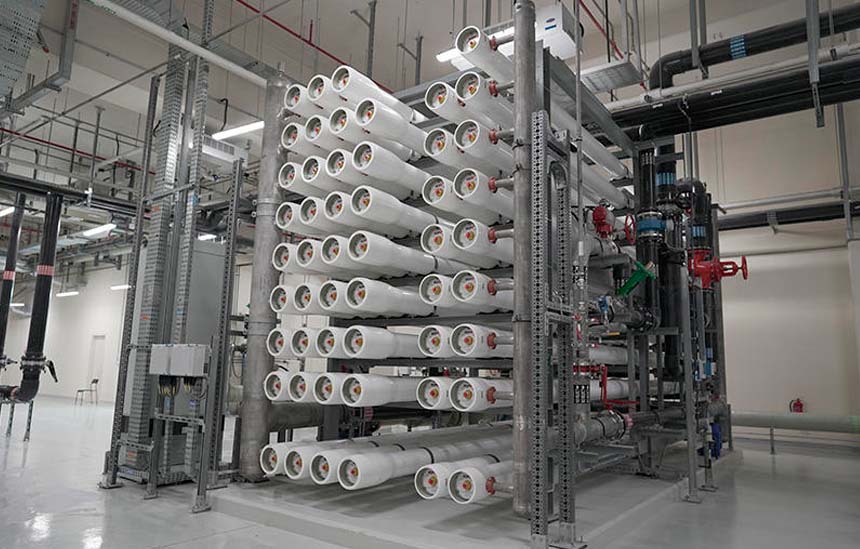Veolia Water Technologies Qatar and Katara Project have inaugurated a pioneering facility for the reuse of treated wastewater in Qatar. Thanks to this state-of-the-art plant, Katara Cultural Village will save between 5,000 and 15,000 cubic meters of fresh water per day.
Through its subsidiary Veolia Water Technologies, a global leader in water technologies, Veolia is revolutionizing treated wastewater reuse at Katara Cultural Village, a major cultural and tourist complex in Doha, Qatar. In collaboration with Katara Project, Veolia has set up the country’s first wastewater treatment facility of this scale. A major step forward in addressing local ecological transformation challenges.
With a daily capacity of 15,000 cubic meters, this plant efficiently transforms treated wastewater into high-quality water suitable for irrigating Katara’s green spaces and supplying cooling towers. By substituting fresh water with this treated wastewater, the project drastically reduces water costs and the energy consumption required to produce clean water for irrigating Katara’s green spaces and cooling.
As part of its GreenUp 24-27 strategic program, Veolia is contributing its expertise to help Qatar achieve the objectives of its “Qatar National Vision 2030” strategy by reducing dependence on fresh water through wastewater reuse.
“Our collaboration with Katara Project is at the heart of our GreenUp strategic program aimed at helping regions adapt to climate disruption. This project not only preserves fresh water, but also exemplifies the sustainable use of water in the city. We are delighted to bring all our know-how to support Qatar’s ecological transformation” said Estelle Brachlianoff, Veolia’s Chief Executive Officer.
This pioneering achievement by Veolia Water Technologies in Qatar represents a major advance in the sustainable reuse of treated wastewater, preserving fresh water resources and reducing energy consumption.

